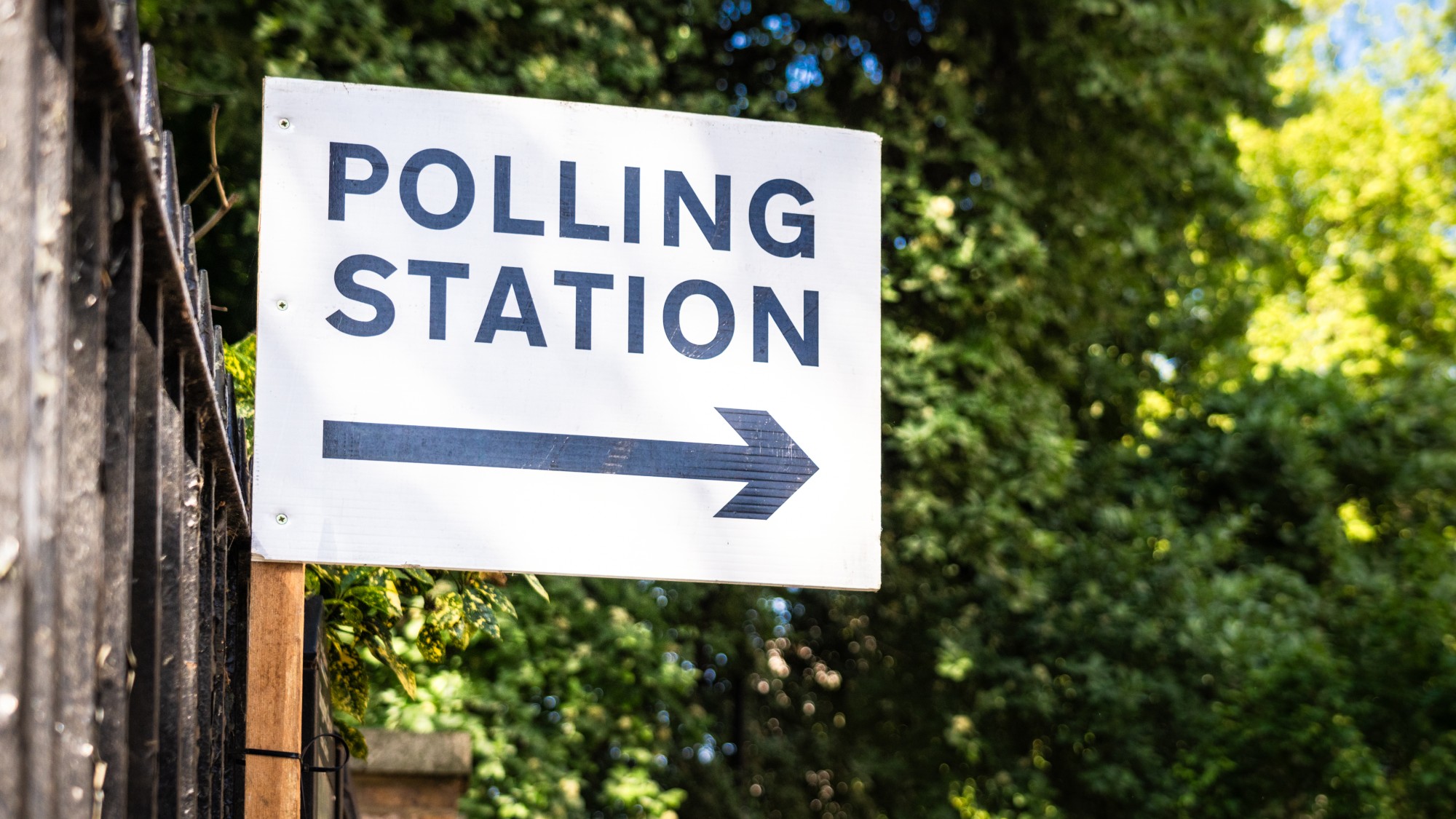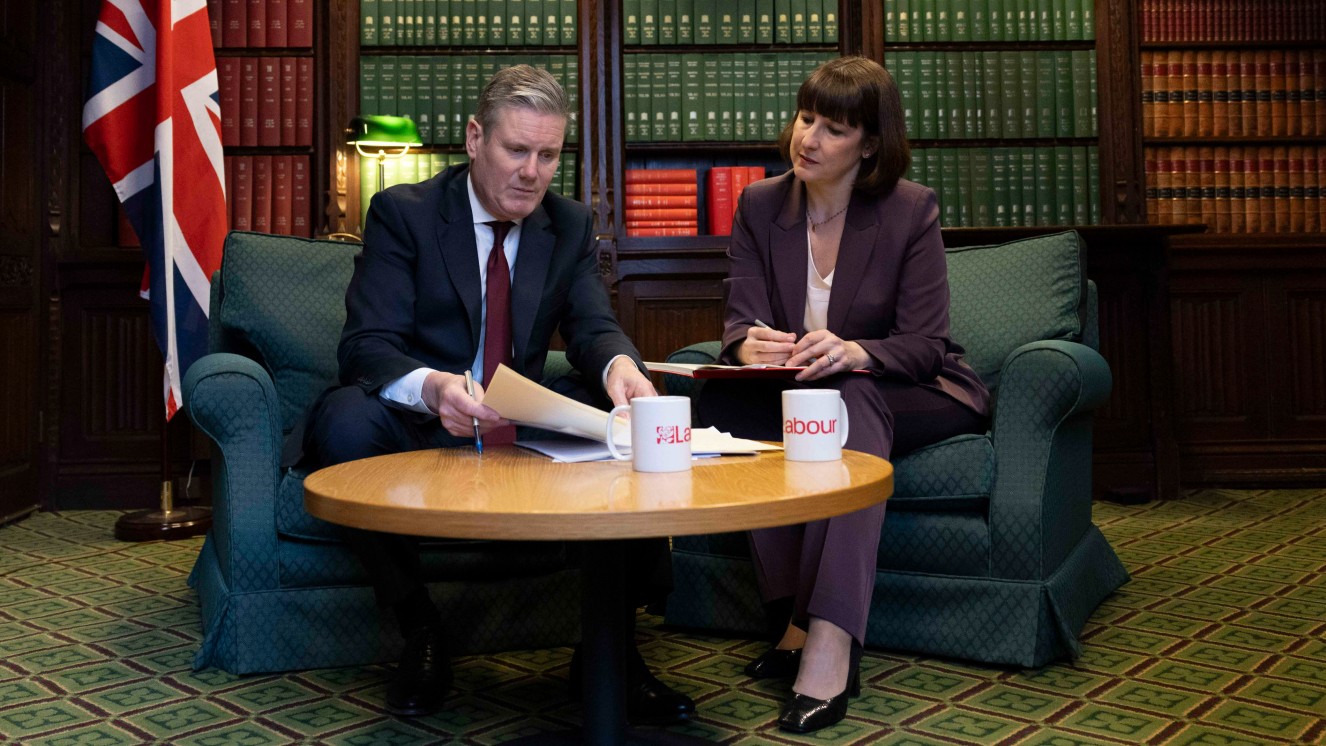How the general election could affect your finances
From pensions to tax, the newly elected government could have a big influence on your wealth

A free daily email with the biggest news stories of the day – and the best features from TheWeek.com
You are now subscribed
Your newsletter sign-up was successful
With the date of the general election now set, finance is set to be a central issue with interest rates and inflation still high.
Money is still "so tight" for millions of people, said the Daily Express, meaning that the financial policies of the main political parties will be crucial in deciding who to vote for.
Manifestos are still being prepared ahead of the general election on 4 July, said Fidelity International, but there is likely to be "intense focus" on key areas of personal finance.
The Week
Escape your echo chamber. Get the facts behind the news, plus analysis from multiple perspectives.

Sign up for The Week's Free Newsletters
From our morning news briefing to a weekly Good News Newsletter, get the best of The Week delivered directly to your inbox.
From our morning news briefing to a weekly Good News Newsletter, get the best of The Week delivered directly to your inbox.
Here are the financial issues to consider ahead of the general election.
Pension policies
The state pension is "becoming expensive to fund", said MoneyWeek, but both the Conservative and Labour Party have committed to keeping the triple lock.
This calculates how much state pension payments will increase by each tax year based on the highest of wage growth, inflation or 2.5%.
There are risks of "intergenerational unfairness", added MoneyWeek, as the increases often go above inflation and wage growth.
A free daily email with the biggest news stories of the day – and the best features from TheWeek.com
But the Conservative Party is now also proposing an increase in the tax-free personal allowance threshold for pensioners each year using the triple lock.
This would increase the amount pensioners can keep from their income every year, explained the Daily Telegraph, "by reducing their tax liabilities".
Voters should also watch out for increases in the state pension age, added Fidelity International. The timing of a rise to age 68 "is already in doubt" and is due to be independently reviewed after the election.
Research by the International Longevity Centre UK has warned the state pension age may need to rise to 70 by 2040.
Meanwhile, the current Tory government abolished the lifetime allowance on pension savings this tax year but Labour has said it "wants it reinstated", said Hargreaves Lansdown, creating uncertainty for investors.
Savings reform
All adults have a £20,000 annual ISA allowance that they can use to earn returns tax-free on cash savings or stock market investments.
The Treasury has also been consulting on an extra £5,000 allowance to back home-grown companies through a British ISA.
The Labour Party is planning to "push ahead" with these proposals, said City AM, in an effort to "get cash flowing to the stock market".
Tax thresholds
Frozen tax thresholds are set to be a "key battleground" during this election campaign, Laura Suter from the wealth manager AJ Bell told The Times.
The Tory government has frozen tax thresholds until 2028, meaning people pay more tax as their earnings increase even without tax rates rising, known as fiscal drag.
This creates billions in revenue for the Treasury, and the shadow chancellor Rachel Reeves has so far failed to commit to raising tax thresholds when pressed by the media.
Current chancellor Jeremy Hunt argued in April that tax cuts are the government's "absolute priority", said MoneyWeek.
Meanwhile, Reeves used a speech at engineering giant Rolls-Royce in Derby this week to state that there will be "no additional tax rises needed" beyond what Labour has already proposed.
This includes "closing loopholes in the windfall tax" on oil and gas companies, said The National, keeping the government plans to tax non-doms and adding VAT to private school fees.
She also hinted that she would "like to cut income tax and national insurance", but wouldn't do so until she has a way of funding the reduction.
Housing
Housing is a "key concern", said AJ Bell and first-time buyers will be looking out for support to help them onto the property ladder while current homeowners will want policies that "moderate inflation and increase the likelihood of interest rate cuts".
We already know a "fair bit" about Labour's housing policy ahead of a manifesto launch, said PrimeResi, after leader Keir Starmer previously pledged to "get Britain building" and warned of a stamp duty increase for international buyers.
The good news for those currently looking to buy or sell is that Starmer's policies are "markedly more mellow", added PrimeResi, compared with the Corbyn era.
The lack of a "huge divide" in housing policy, said Zoopla, means the election at least will not have "as big an impact" on the housing market as in previous years.
Marc Shoffman is an NCTJ-qualified award-winning freelance journalist, specialising in business, property and personal finance. He has a BA in multimedia journalism from Bournemouth University and a master’s in financial journalism from City University, London. His career began at FT Business trade publication Financial Adviser, during the 2008 banking crash. In 2013, he moved to MailOnline’s personal finance section This is Money, where he covered topics ranging from mortgages and pensions to investments and even a bit of Bitcoin. Since going freelance in 2016, his work has appeared in MoneyWeek, The Times, The Mail on Sunday and on the i news site.
-
 What to know before filing your own taxes for the first time
What to know before filing your own taxes for the first timethe explainer Tackle this financial milestone with confidence
-
 The biggest box office flops of the 21st century
The biggest box office flops of the 21st centuryin depth Unnecessary remakes and turgid, expensive CGI-fests highlight this list of these most notorious box-office losers
-
 The 10 most infamous abductions in modern history
The 10 most infamous abductions in modern historyin depth The taking of Savannah Guthrie’s mother, Nancy, is the latest in a long string of high-profile kidnappings
